Advanced electromyography testing that pinpoints exactly what’s causing your muscle weakness, numbness, or tingling.
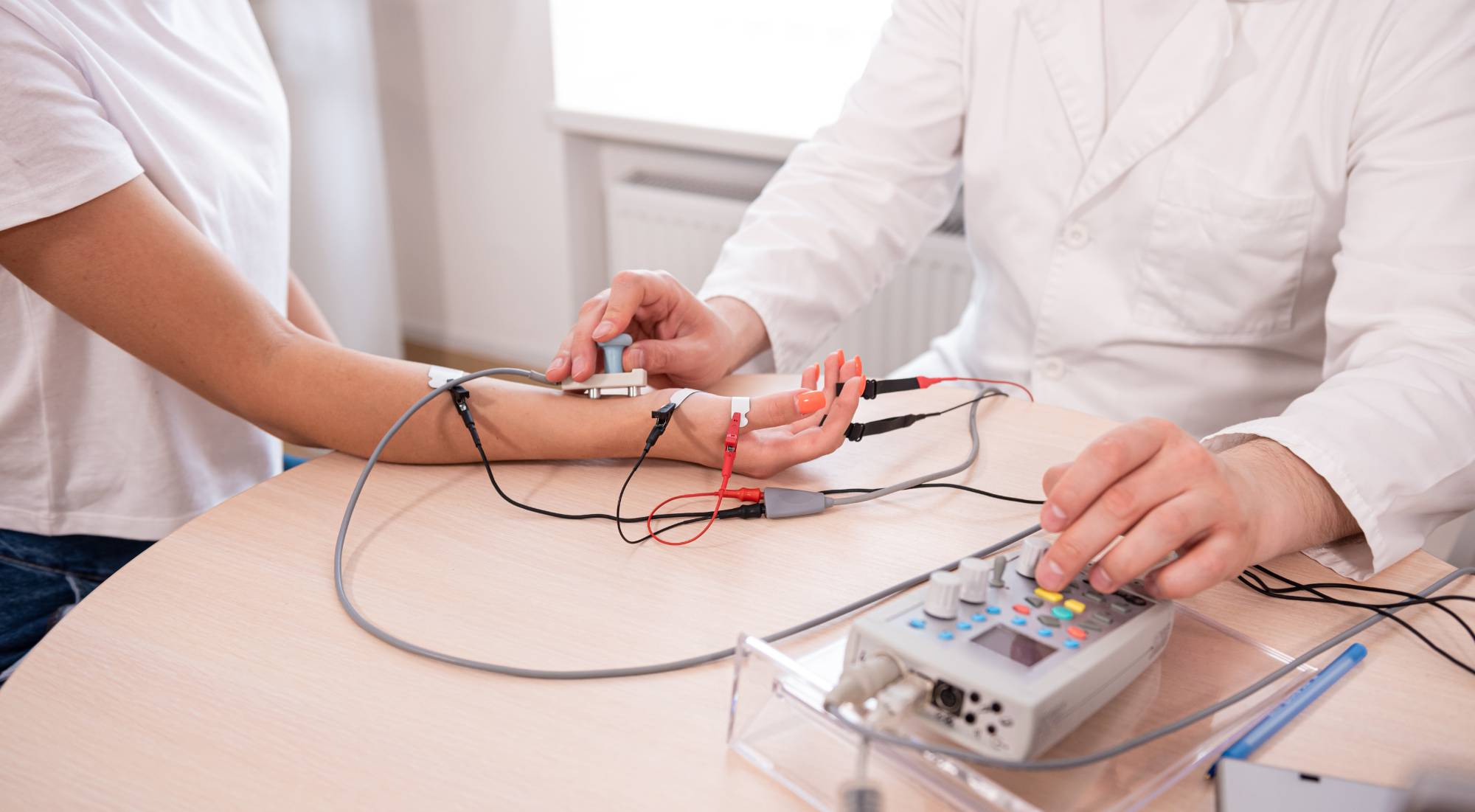
Reviews
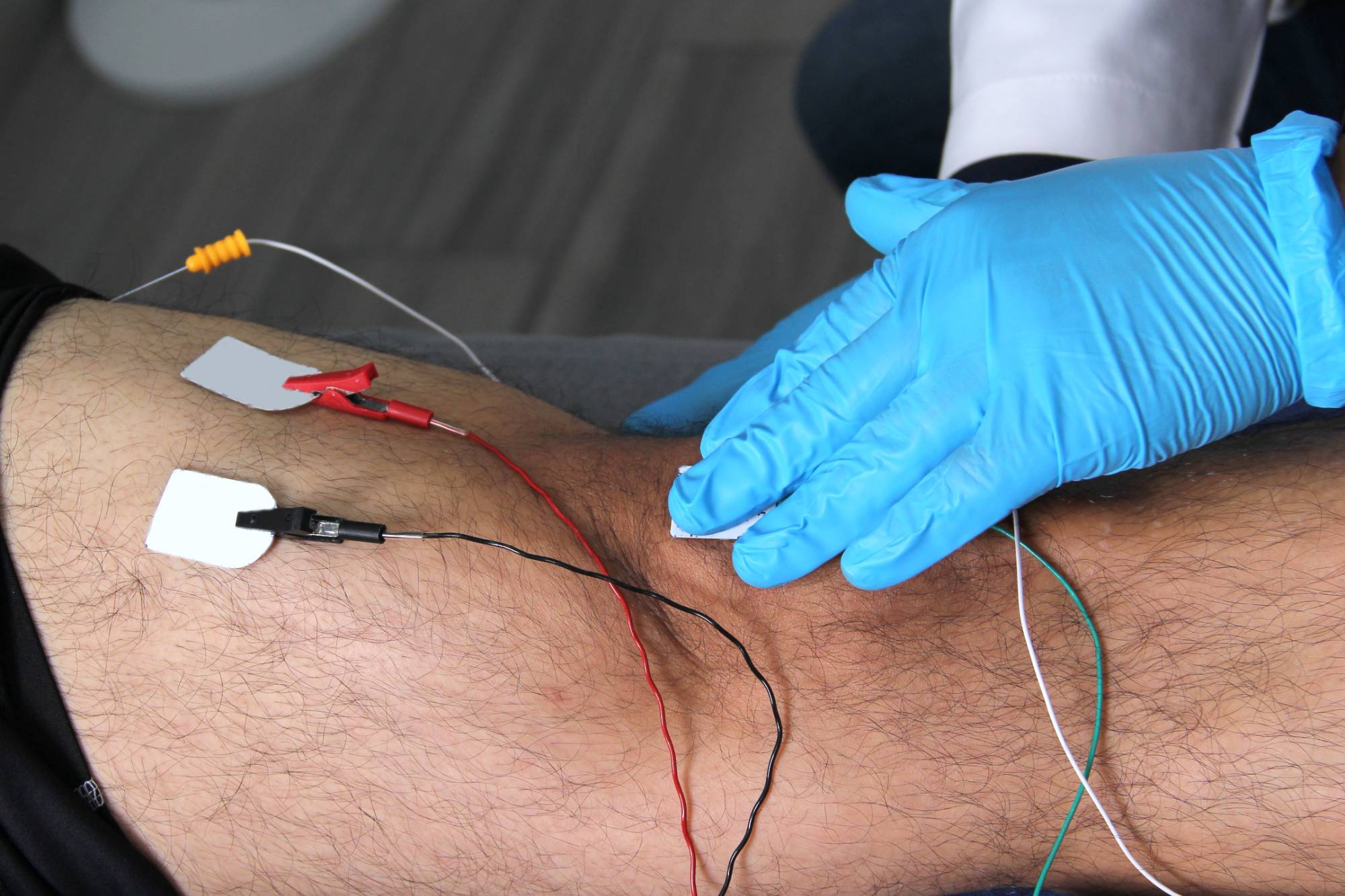
You’ve been dealing with unexplained symptoms long enough. That numbness in your hands during work. The muscle weakness that makes simple tasks frustrating. The tingling that keeps you awake at night.
EMG testing gives you concrete answers. Instead of guessing what’s causing your nerve or muscle problems, you get precise diagnostic information that leads to the right treatment plan.
When you know exactly what’s happening in your body, you can move forward with confidence. No more wondering if your symptoms will get worse or if you’re missing something serious. Just clear results that help you and your doctor create a path to feeling better.
NY Spine Medicine brings years of specialized experience in electromyography and nerve conduction testing to Miami Shores. We understand that getting accurate diagnostic results is crucial for your health and peace of mind.
We’ve helped countless patients in South Florida get the answers they need about nerve and muscle disorders. From carpal tunnel syndrome to diabetic neuropathy, our specialists have seen it all and know how to interpret your results clearly.
You’re not just getting a test – you’re getting expertise that comes from years of helping people understand and address their nerve and muscle problems.
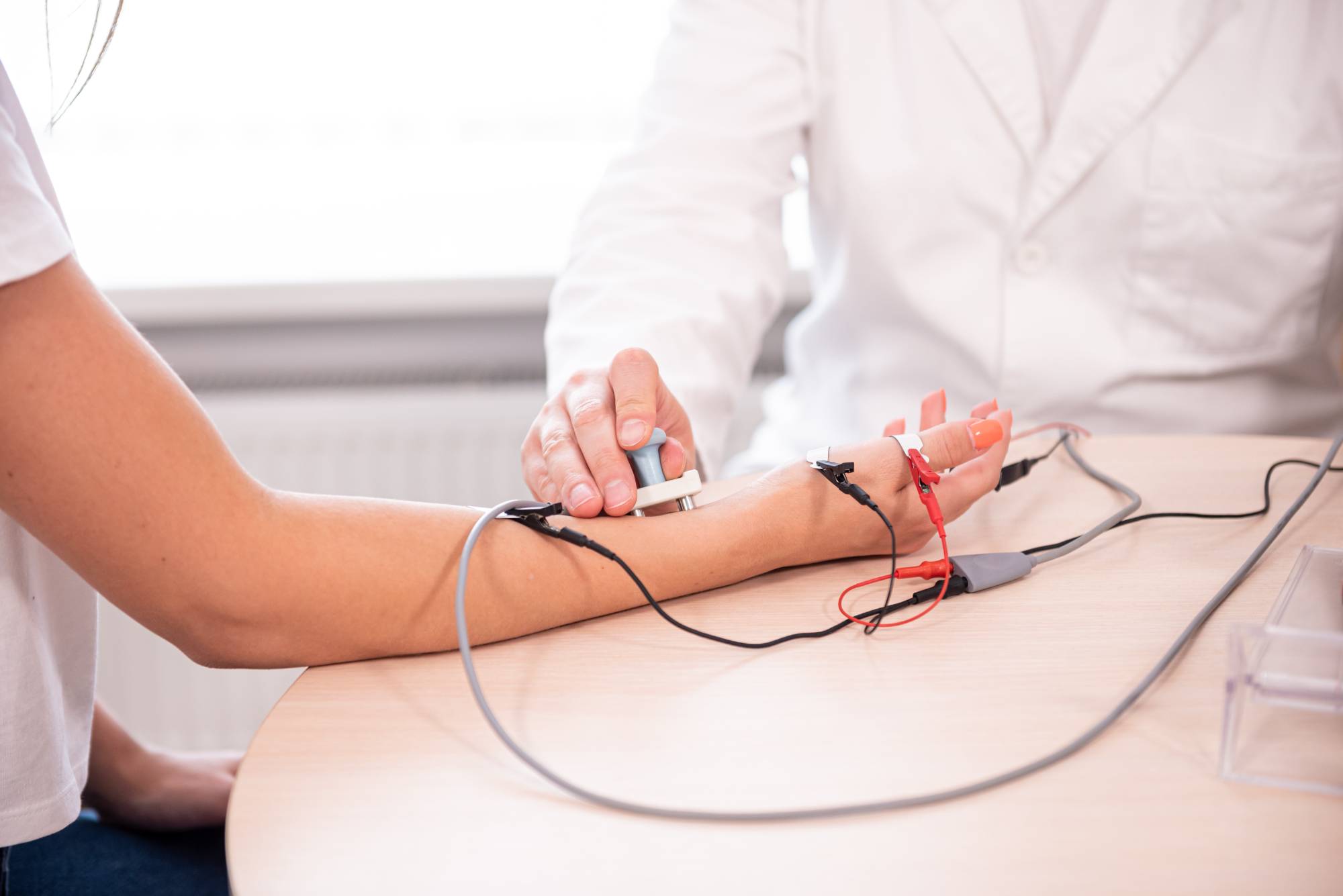
Your EMG testing appointment starts with a brief discussion about your symptoms and medical history. This helps our specialist understand what areas need the most attention during your test.
During the electromyography portion, small electrodes are placed on your skin or thin needles are inserted into specific muscles to measure electrical activity. The nerve conduction study uses surface electrodes to test how well your nerves transmit signals.
Most testing sessions take 30-60 minutes depending on which areas need evaluation. You’ll get your results explained right away, so you leave understanding what the test found and what it means for your treatment options.
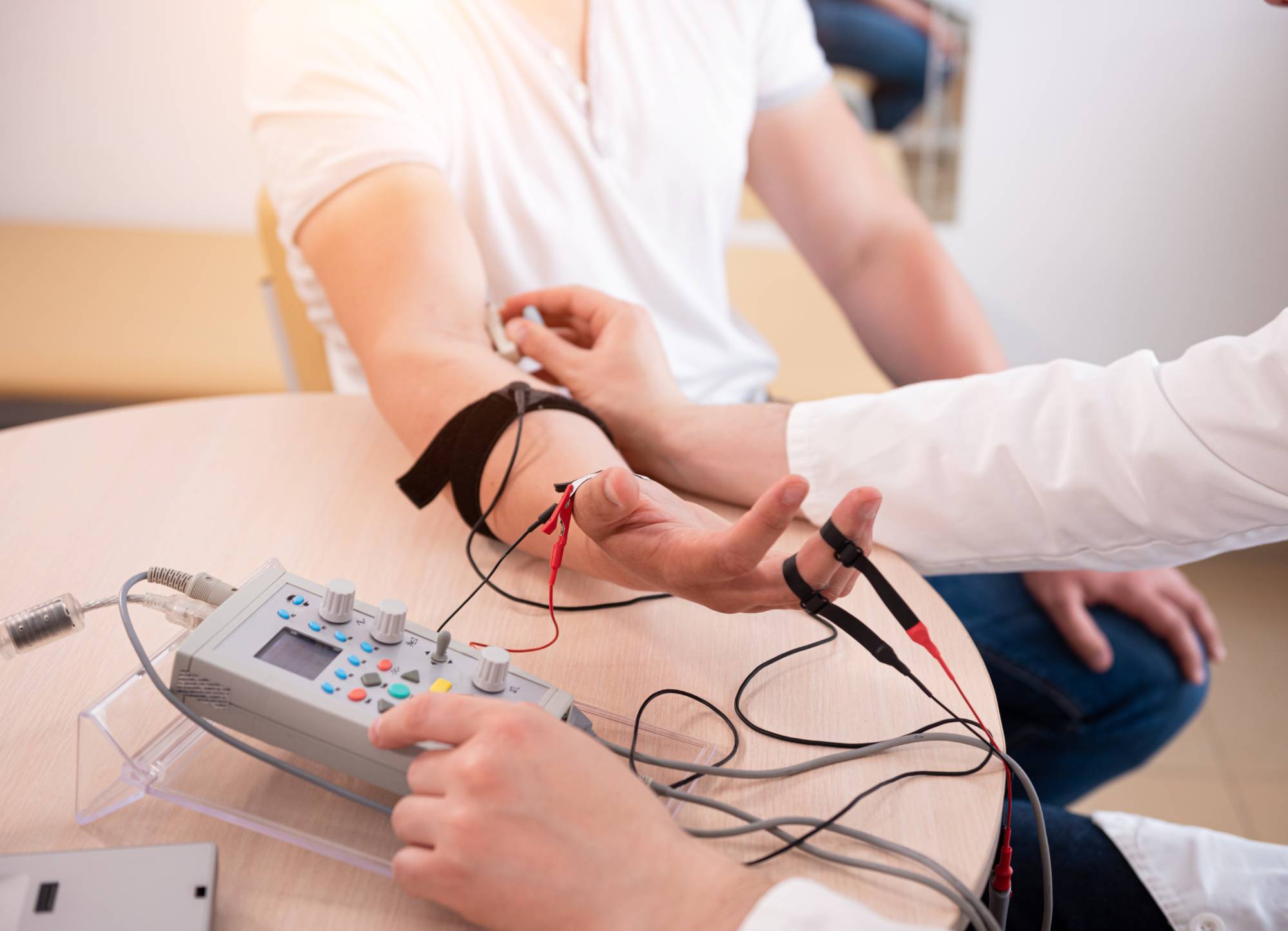
Ready to get started?
Your EMG testing includes both electromyography and nerve conduction studies for a complete picture of your nerve and muscle function. This comprehensive approach catches problems that single tests might miss.
The testing covers common conditions like carpal tunnel syndrome, ulnar neuropathy, radiculopathy, and various muscle disorders. You also get detailed interpretation of results in terms you can understand, not medical jargon that leaves you confused.
Everything is designed to give you and your referring doctor the clearest possible information about your condition. That means better treatment decisions and a faster path to feeling better.
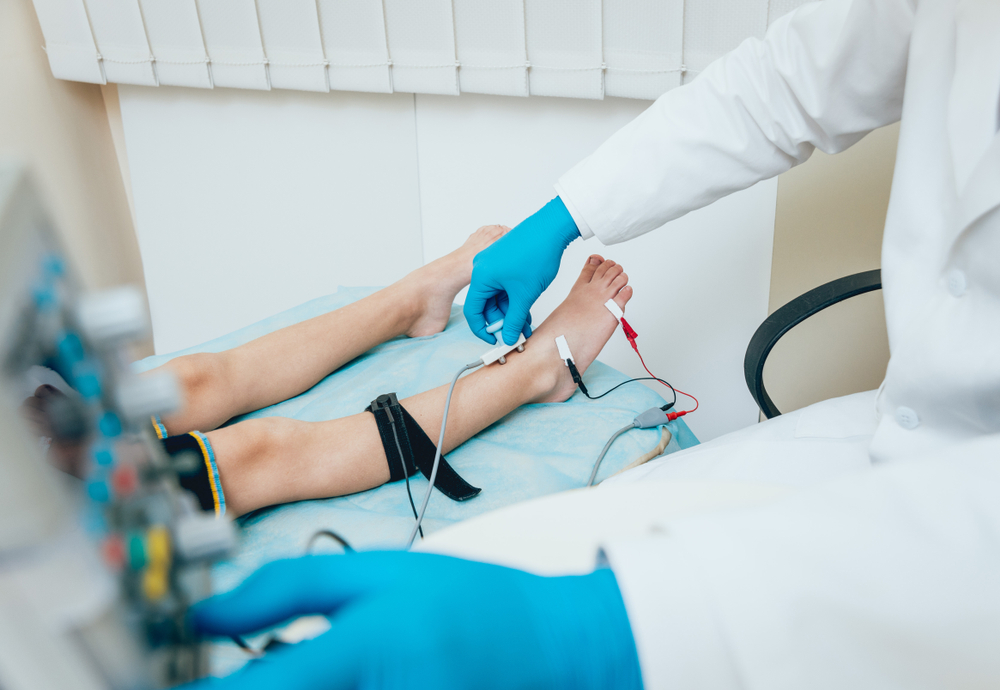
New York:
Florida:
Support